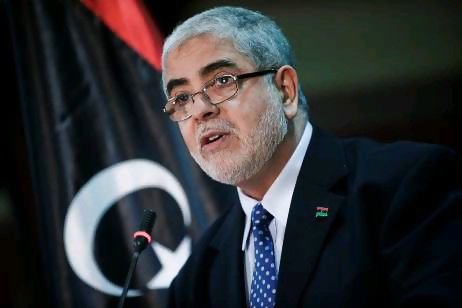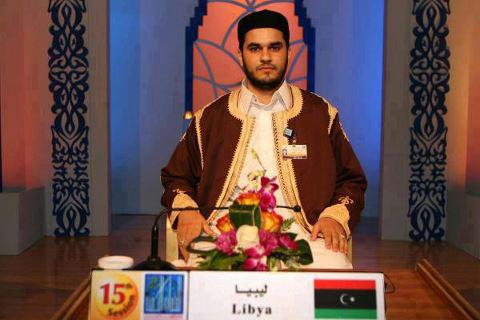By George Grant.

Tripoli, 12 August:
The election of Mohamed Magarief as speaker of the National Congress on Thursday undoubtedly represents the most . . .[restrict]significant triumph of the National Front leader’s long career.
However, he has not been the only beneficiary of this election. One other man who will have been celebrating, albeit quietly, is Libya’s deputy prime minister Mustafa Abushagur who just moved one step closer to the top job as a result.
As things presently stand, two men are currently in the running to be prime minister: Abushagur and Electricity Minister Awad Barasi.
Having worked together in Magarief’s National Front for the Salvation of Libya (NFSL) in the late 1980s and early 1990s, Abushagur and the new Congress speaker are known to be close.
Powerful forces are also now at work to re-forge that relationship at the highest level by securing a critical mass of congressmen in support of Abushagur for prime minister over Barasi in the coming election for the post.
Perhaps the most important reason why these efforts now look increasingly likely to prevail is one of simple geographical realpolitik.
Originally from Benghazi, Magarief’s choice as speaker is an important boon for the east, with many there still fearful of being sidelined by Tripoli in the new Libya.
Unfortunately for Barasi, this simple accident of birth also makes his selection as prime minister that much more difficult, given that he too hails from the east’s first city.
To have one of the two top jobs taken by a Benghazi man is good politics. To have both starts to look like recklessness.
Consequently it would not be wrong to interpret Magarief’s victory as a another significant setback for the Muslim Brotherhood’s Justice & Construction party (J&C).
Quite apart from misleading headlines that Magarief is ‘pro-Islamist’ (of which more later), the simple fact is that the main prize desired by the Islamists in this contest was always the prime minister, not the speaker, and they contemplated significant compromises over who should be selected for the latter post in order to maximize the chances of getting their choice for the former.
As a member of the Muslim Brotherhood, the choice of the J&C and their allies for prime minister was, and remains, Barasi.
Insiders have told this paper that such was their desire to secure the necessary votes in Congress to see Barasi installed as PM, that the Islamists entered into extensive negotiations with Mahmoud Jibril and his National Forces Alliance (NFA) in the weeks preceding the vote.
To put this into context, Jibril and the J&C could hardly be described as natural political bedfellows. Shortly after the National Congress elections, J&C leader Mohammed Sawan labelled Jibril as “like Qaddafi” in his comprehension of Sharia law, describing the NFA as the furthest away from his party politically of all the groups in Congress.
Be that as it may, what Sawan was unable to change was simple electoral mathematics, and the voters had delivered 39 of the 80 seats available in the Congress to the NFA, as against just 17 for the J&C.
Equally, Jibril appears to have concluded that the NFA’s strong position in Congress meant that he should consolidate his power-base there, hence his priority was the choice for speaker.
So it was that Jibril reportedly agreed to throw his weight behind Barasi for prime minister, if the Islamists would support his favoured choice, the independent congressman Ali Zidan, for the post of speaker.
What appears to have happened next is interesting. In addition to Magarief and Zidan, the third main contender in the speaker’s race was Abdulrahman Sewehli, the Misrata-based leader of the Union for Homeland party.
Sources claim that in the days before the speaker elections, Sewehli approached the Islamists to persuade them to shift their allegiance from Zidan to him. The J&C reportedly agreed, having concluded that such clear collusion between themselves and Jibril could do lasting harm to their reputation.
In their view, Sewehli’s significance over Magarief was that he was not from the east. This is important because of the general agreement in Congress that if the prime minister came from the east, the speaker should come from elsewhere in Libya, or vice versa. Thus Sewehli being from the west, this left the road clear for Barasi as prime minister.
Moreover, other than Magarief, Sewehli was the only viable contender to Zidan for the speaker’s job, the latter being the choice of Jibril and his allies.
As it was, Sewehli narrowly missed out in the first round of voting, taking 53 votes to Magarief’s 56, whilst Zidan led with 80. Having chosen to break with Jibril and the NFA, the J&P and other Islamists had no choice but to back Magarief, who triumphed in the final round with 113 votes to Zidan’s 85.
For the Islamists then, Magarief was a compromise choice, making reports that he had their backing and is ‘pro-Islamist’ overly simplistic.
Magarief is fundamentally a pragmatist, as well as the leader of a party that is arguably the most liberal-leaning of all in Congress. During the elections, the National Front stood on a moderate platform, which amongst other things made particular mention of the importance of female empowerment.
Senior officials in the party have openly aired their discomfort with the more hardline Islamist politics of the J&C, believing that it is not the role of government to instruct people how to live their faith.
Indeed, in the political programme issued by the National Front for the Salvation of Libya (NFSL), the forerunner of the National Front up to 9 May 2012, no mention is made of Islam at all, other than to say that Libya would respect “the national identity of its people including their cultural, linguistic, religious and ethnic affiliations.”
Regardless of this, however, Magarief possesses an important attribute that also counted in his favour on Thursday evening, namely that he represents a clear and decisive break with the past.
A one-time ambassador to India, Magarief has a consistent track record as an anti-Qaddafi stalwart, having established the NFSL in 1981 and survived no fewer than three attempts on his life by the Qaddafi regime subsequent to that.
Throughout its existence during the Qaddafi-era, the NFSL stood on a two-point platform: the removal of Qaddafi from power and the establishment of constitutional democracy in Libya. Nobody, therefore, could accuse Magarief of being unacceptably tainted by the old regime.
The same, by contrast, could not be said of Mahmoud Jibril, and by extension his choice of speaker. Although widely recognised as a reformer who defected from the regime at the outset of the revolution, Jibril nevertheless served in senior posts between 2007-2011, and he has been seen by some as overly enthusiastic in reaching out to Qaddafi loyalists subsequently.
Additionally, Jibril’s love of politicking and his undisguised desire to play the kingmaker appear to have cost him friends both inside and outside of Congress.
Altogether, this confluence of factors seems to explain how and why Magarief prevailed on Thursday night.
For Abushagur, as a result, the race to be prime minister is now his to lose, so long as he can combine this circumstance with his own attributes to successfully navigate a course through Congress’s already complicated political waters.
Highly personable and widely regarded as a safe pair of hands, the current deputy prime minister has the added advantage of not being someone who makes strong enemies easily. He has made his desire to work with all comers repeatedly clear, and has not ruled out including anyone from a potential future cabinet.
Add to this Abushagur’s unabashedly pro-business and internationalist outlook, which goes down well with those concerned about the all-important priority of economic growth, and he could just possess a winning combination.
As for Barasi, his chances of success may well be further hindered by the fact that the NFA will have been stung by the J&C’s last minute betrayal over the speaker agreement, and will not feel bound to lend their support to the Muslim Brotherhood candidate as a result.
Having held its first session on 9 August, the National Congress now has 30 days from that date to select a prime minister and a government as per the stipulations of the Constitutional Declaration of 3 August 2011. Mustafa Abushagur should prepare for office; his time may almost have come. [/restrict]










